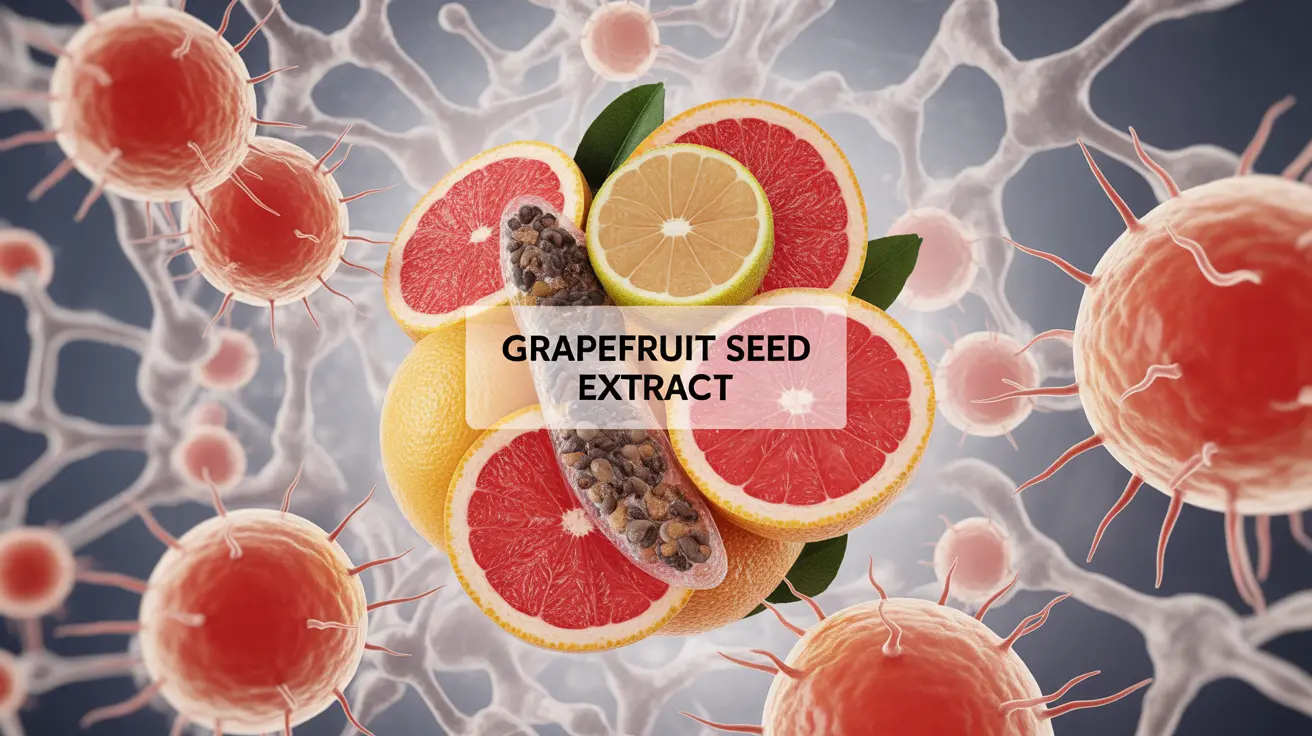Grapefruit seed extract has gained attention as a natural remedy for Candida infections, offering potential antifungal properties that may help combat various forms of yeast overgrowth. This comprehensive guide explores how this natural extract works, its effectiveness, and important safety considerations for those seeking alternative treatments for Candida-related issues.
Understanding Grapefruit Seed Extract and Its Antifungal Properties
Grapefruit seed extract (GSE) is derived from the seeds, pulp, and white membranes of grapefruit. This concentrated substance contains beneficial compounds, including polyphenols and citrus bioflavonoids, which contribute to its antimicrobial and antifungal properties. Research suggests these compounds may help inhibit the growth of various Candida species, making it a promising natural treatment option.
How Grapefruit Seed Extract Fights Candida
The extract works through multiple mechanisms to combat Candida infections:
- Disrupts fungal cell membranes
- Prevents Candida from adhering to host cells
- Exhibits broad-spectrum antimicrobial activity
- Supports the body's natural immune response
Effective Usage and Dosage Guidelines
When using grapefruit seed extract for Candida infections, proper dosing is crucial for both safety and effectiveness:
Oral Consumption
Start with 100-200mg of standardized extract, taken 2-3 times daily with meals. Always begin with a lower dose and gradually increase as tolerated.
Topical Application
For external use, dilute 5-10 drops in 1 ounce of carrier oil or water. Apply to affected areas 2-3 times daily after properly cleaning the area.
Safety Considerations and Drug Interactions
While grapefruit seed extract is generally considered safe, several important precautions should be noted:
- Avoid if taking certain medications, particularly those metabolized by the liver
- Not recommended during pregnancy or breastfeeding
- May cause digestive upset in sensitive individuals
- Should be used under healthcare provider supervision
Incorporating GSE into a Candida Treatment Plan
For optimal results, grapefruit seed extract should be part of a comprehensive approach:
- Follow a low-sugar, anti-Candida diet
- Support gut health with probiotics
- Maintain good hygiene practices
- Address underlying health conditions
- Consider complementary natural antifungals
Frequently Asked Questions
What is grapefruit seed extract and how does it work against Candida infections?
Grapefruit seed extract is a natural compound derived from grapefruit that contains antifungal and antimicrobial properties. It works by disrupting the cell membranes of Candida organisms and preventing their ability to reproduce and spread, while also supporting the body's natural immune response against fungal infections.
Can grapefruit seed extract effectively treat oral thrush and other types of Candida overgrowth?
Research suggests that grapefruit seed extract can be effective against various forms of Candida, including oral thrush. When used properly, either as a mouth rinse or in supplement form, it may help reduce symptoms and support the body's natural ability to combat fungal overgrowth.
What is the recommended dosage and safety precautions for using grapefruit seed extract for Candida?
The typical dosage ranges from 100-200mg taken 2-3 times daily for supplements. For topical use, dilute 5-10 drops in water or carrier oil. Always start with a lower dose and increase gradually while monitoring for any adverse reactions.
Are there any risks or side effects of using grapefruit seed extract, especially regarding interactions with medications?
Grapefruit seed extract can interact with numerous medications, particularly those metabolized by the liver. Common side effects may include digestive upset, and it should be avoided during pregnancy. Always consult with a healthcare provider before starting GSE, especially if taking prescription medications.
How should grapefruit seed extract be used as part of a Candida cleanse or natural antifungal treatment plan?
Grapefruit seed extract should be used as part of a comprehensive approach that includes dietary modifications, stress management, and other supportive measures. Combine it with a low-sugar diet, probiotics, and other natural antifungals while maintaining consistency in usage for optimal results.




